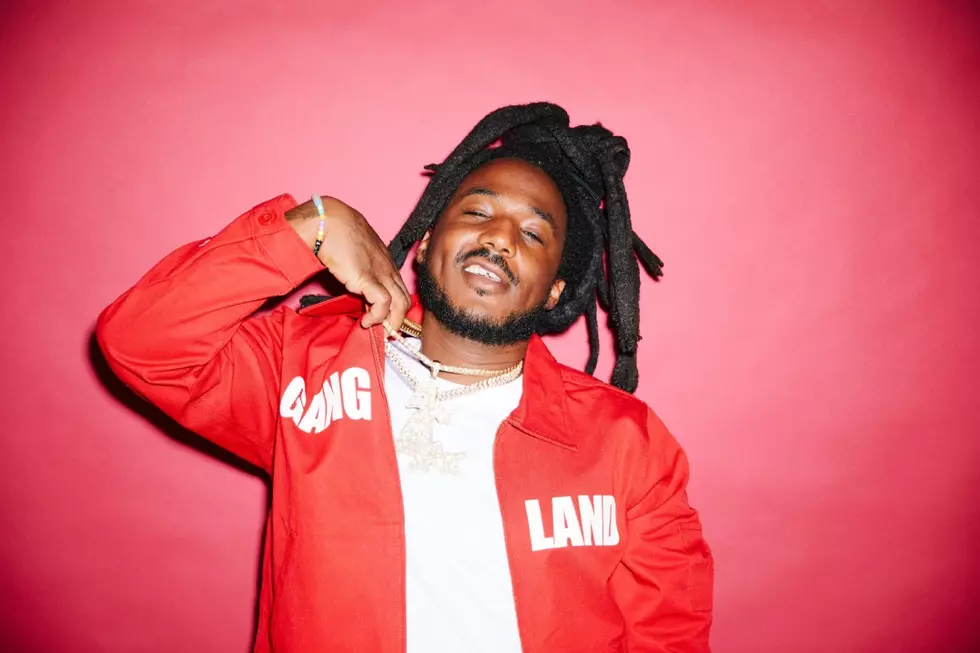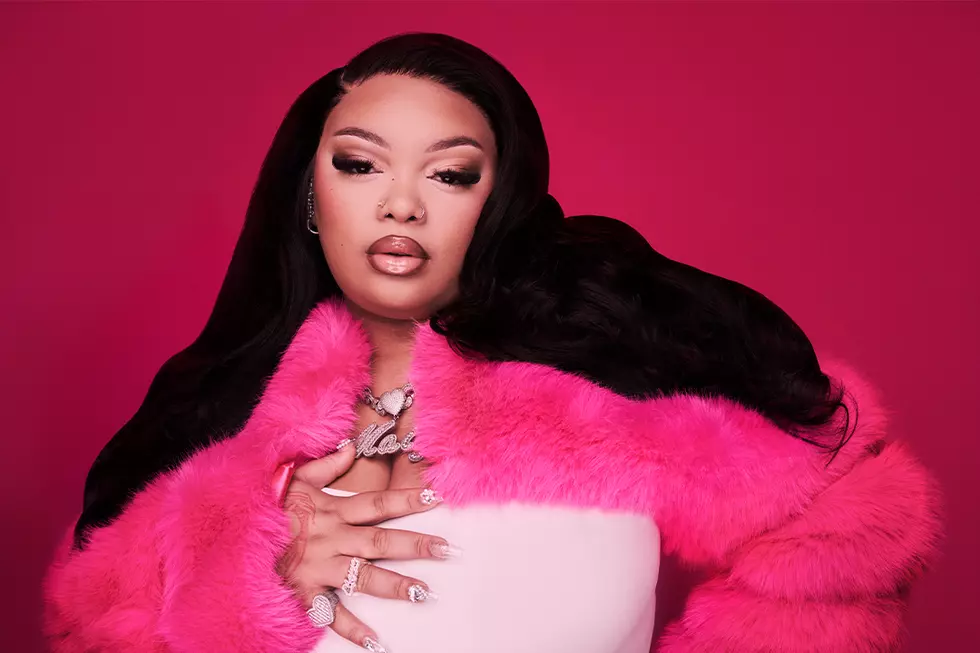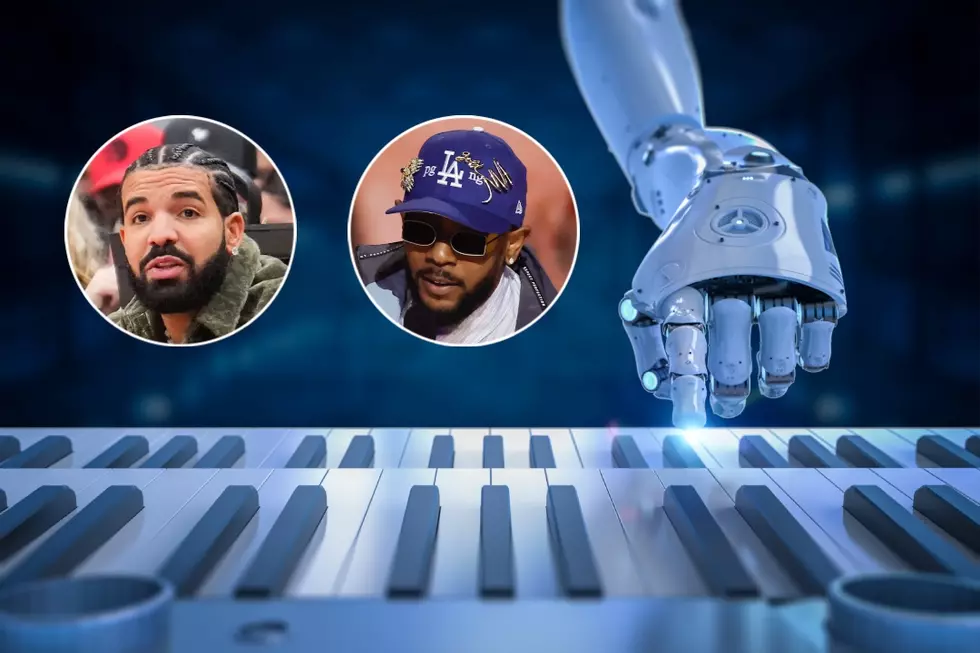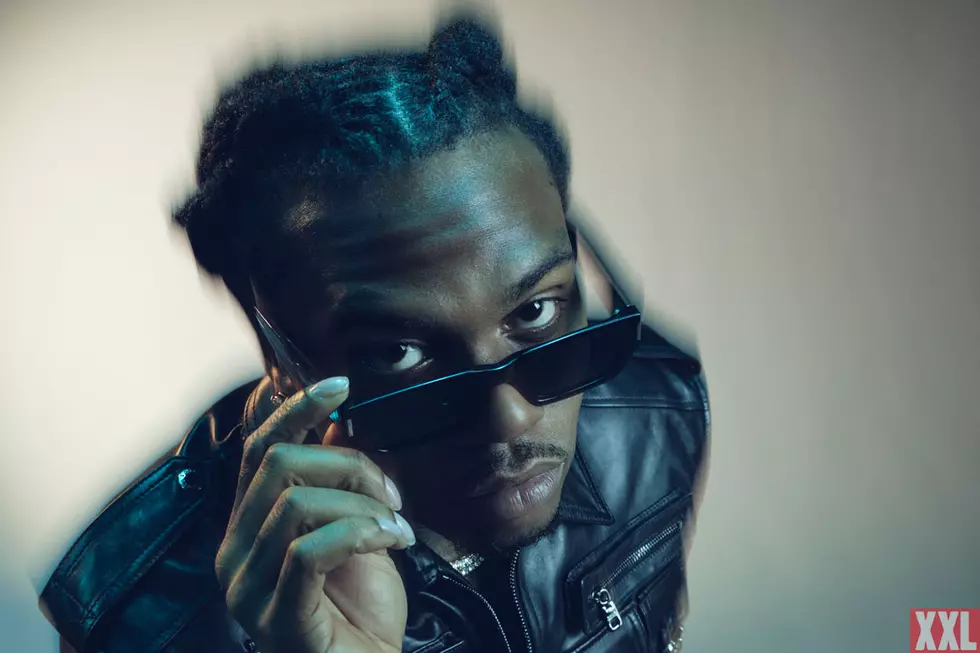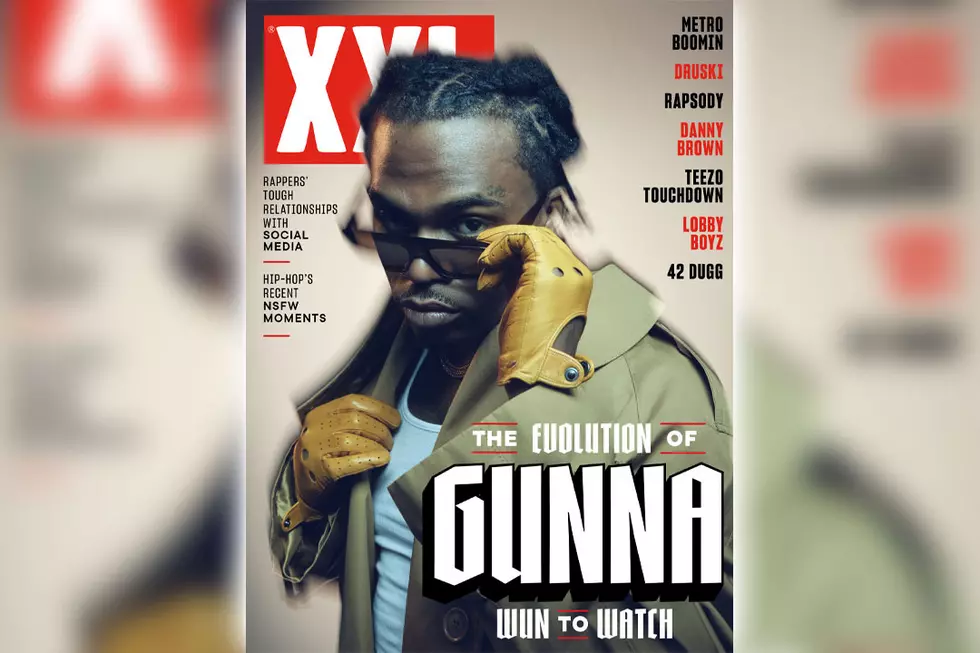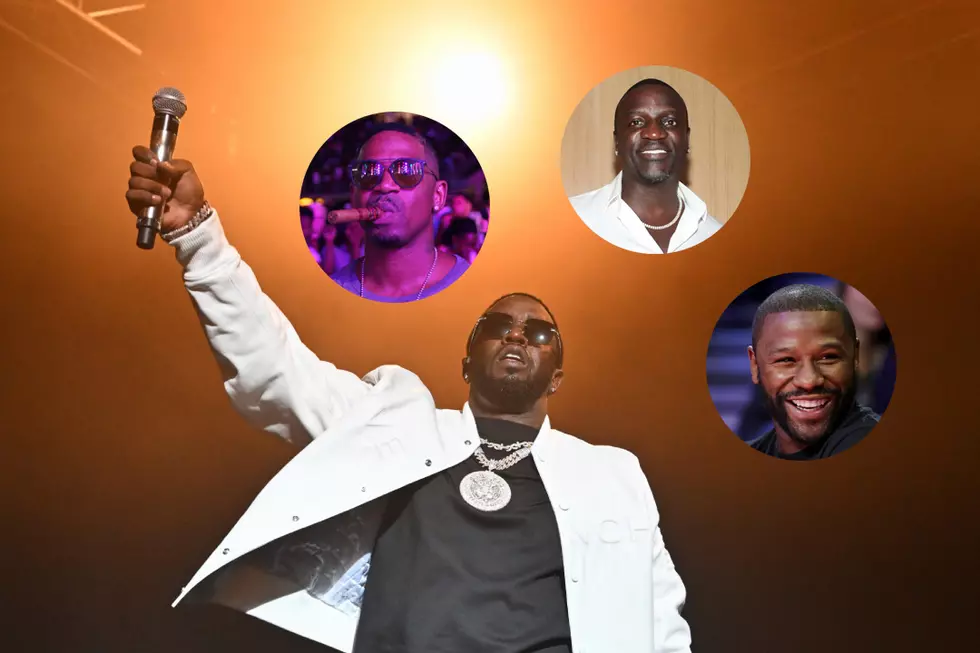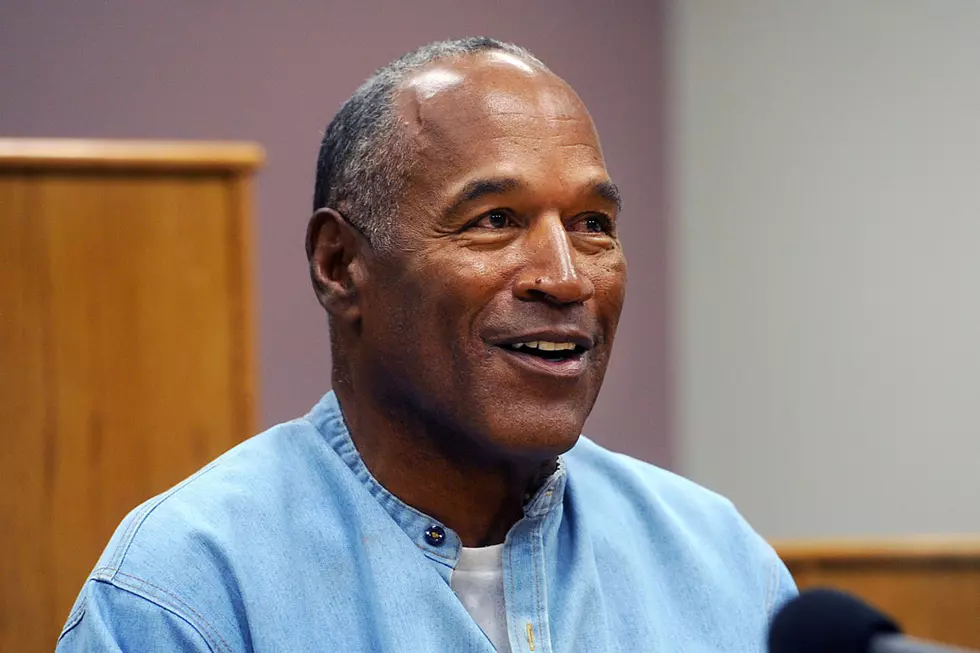
Pimp C’s Biographer Discusses Her New Book About the Veteran MC
Considered one of the pioneers of Southern hip-hop, Pimp C's legacy continues to live on thanks to people like Julia Beverly, publisher and editor-in-chief of Ozone Magazine, who has penned the late and great UGK member's new biography, Sweet Jones: Pimp C's Trill Life Story.
Beverly's self-published book gives rich detail to the life and times of Sweet Jones. With over 700 pages of never before heard stories and exclusive photos of the Pimp, the book is a remarkable piece of work that highlights some of the MC's darkest moments as well as his come up in the rap game. For Beverly, the idea of making a book on Pimp C's life began when she started researching the legacy of the Port Arthur native. Fascinated by his story, Beverly decided she wanted to share the influence and impact Pimp C left in this world. Starting her project in 2010, Beverly devoted five years to investigating the mysterious life and tragic death of the Texas rapper. With the help of Pimp's late mother and manager Weslyn "Mama Wes" Monroe, UGK rap partner Bun B and Pimp's thousands of rap friends, the book was finally completed in 2015.
Now available for purchase at book retailers across the U.S., Sweet Jones: Pimp C's Trill Life Story gives readers the in-depth story of Chad Butler's life from start to finish while providing a great read for any rap fan. XXL sat down with book's author, Julia Beverly, to find out the challenges and stories she found about the late MC during the process of writing and researching her book. —Roger Krastz
XXL: Why did you decide to write a biography on Pimp C?
Julia Beverly: Well, I knew him and I considered him a friend, or maybe an ally. We actually met when he was incarcerated, and of course he was a very legendary artist, but I didn't start working in the rap music industry till 2002/2003, so my information about him was pretty limited. Like, you'd just hear this "Free Pimp C" and I didn't know much about him outside of that. But when he came out of prison we had established Ozone Magazine. That was like our hype; 2005/2006 we were just blowing up and doing really well. Our audience, a lot of them also were not aware of what he'd done in terms of laying the ground work for Southern rap, so we were kind of like allies, I felt. He had a lot of information. We had an audience that really needed that information, so we did a lot of collaborations. He used to do a monthly column. Any time I needed any artist to chime in on any subject he was always available. He would come and perform at our events. He would just show a lot of love to Ozone and vice-versa.
So when he passed, I felt like a lot of people didn't know his story and part of that was him, because he didn't like doing interviews. So a lot of the early days, there wasn't a lot of information; you would just kind of hear bits and pieces of the story, whereas maybe like a 2Pac [or] Biggie, their lives have been documented a little bit more. And if you talk to anybody in the South, they look at Pimp C as like a Jay Z, like what someone in New York would look at Jay Z like. So I really wanted to know his story. And as I started digging into it I found some great stuff, so I felt like other people needed to hear his story.
What was the most interesting thing you found?
Oh man, there was a lot of stuff. One of the most interesting parts to me was—because I basically co-wrote it with his mom—his mom is kind of like the narrator of the project and she talked pretty openly about his mental health issues. Even when he was a young teenager, he had asked her, "Can I go see a therapist? I think something is wrong with me." But she described it as like his best friend and his worst enemy at the same time, because he was diagnosed bipolar. He thought he was schizophrenic. He had multiple personalities. So he had a lot going on. He was a very complicated person, period, so when you mix that with the music industry, it's kind of like a blessing and a curse because that was what enabled him to create, but at the same time obviously it was something that he would struggle with.
His mom said that he was depressed. He would struggle with depression really bad, so the music was kind of his way of coping with it. So he's sort of the portrait of the tortured artist, which that's not anything new if you go back to the 1600's, 1700's; you always see examples of people who really were kind of tormented souls or whatever. I don't know if that's the right phrase, but at the same time they were able to apply that and make something great out of it. Talking to her about how, really, his struggles were in terms of just how complicated he was, I think that was the most interesting part.
Who were you speaking to in terms of gathering information for the biography?
His mom and Bun were the first two people I talked to, and then from there I would kind of branch out. It was a mixture. I talked to a lot of artists; Snoop Dogg, Too $hort, Scarface, Bigg Gipp. You know, people that were close to him. And then aside from that I found that the most useful people to talk to were more behind-the-scenes people. Bodyguards, assistants, sound engineers, people that were in his life. I talked to some of the women in his life to get a full portrait of who he was as a person as well as an artist.
What would you say is your favorite story in the book?
His mom is kind of like the book end, she's like the beginning and end of the book. She was such a character and a lot of his attitude and catch phrases, he kind of got that stuff from her. And one of my favorite stories was that she became [UGK's] road manager. So he's like 17, 18 years old and their manager at the time wasn't really doing what they were supposed to do. The road manager goes to jail, so they're without a road manager. His mom is a retired librarian and she ends up being the road manager, so if you can just picture, like, a grandmother librarian becoming a rap manager.
So one of my favorite stories was, she goes to the first show and the club owner gave her some of the money and was trying to short her some of the money and they get into an argument and he throws the money at her. She said she was terrified, because it was all of these security guards and she's this little short grandmother at this nightclub. So she just looked at the money and she looked at him and she said, "When you find a bitch to pick that up, let me know," and she walked out. She said that she was just terrified and she didn't know, but she just put that brave face on and walked out and the DJ picked up the money and brought it to her. But to me that just kind of exemplified who she was and then also who he was, because Pimp was just like that, too, like, "I'm going to state my position and I'm not going to budge from it." I have a lot of great stories on there.
What were some of the things that you wanted to keep in the book that you couldn't?
My process—and it's kind of what I do with everything that I do—I kind of go backwards. I like to elevate what's not needed instead of just picking little parts out, so I started with three million words, which was like all the interviews. So the first draft was like 1,200 pages, but it went off on a lot of tangents on other people in his life or other things that were kind of applicable. Initially, I had a whole chapter about the Texas prison system and the incarceration rate. It's still kind of in there, but I had to trim a lot of it down. There was a whole chapter on Iceberg Slim, and Sweet Jones was a name that Pimp took from an Iceberg Slim book. And if you listen to today's rap music or just pop culture period, there are so many Iceberg Slim references. So I had to cut some stuff on Iceberg Slim, but I feel like he really needs his own book.
What's the story behind the cover artwork?
This was a picture I took. I used to shoot stills for video shoots, so like TVT, Universal or whoever would hire [me] to come and take stills. This was back when they had big budgets for videos, so this was actually right after he got out of prison. We were at a T-Pain video in Miami and Vibe wanted some pictures of him, so he had this mink coat and we did this whole elaborate shoot while we were on the video set and the pictures were awesome. I sent them a low-res image of the picture and loaded all the pictures to my laptop. Drove the next day straight through Atlanta, which is a 10-hour drive, and got there at midnight. T.I. was having a release party, so I had all my stuff in the car I went in the club, came out and they had drilled through the door handle and everything was gone. The photos were gone, too, and I was just sick and it was this great Pimp C photo shoot, so I only had the one little small image that I sent to Vibe. So when we did the book I thought it would be the perfect cover image.
What's something you think people will always remember about Pimp C?
He had sort of a way of always making people feel like they're the best. Whatever it is that you do, he would always tell me, "You got to be humble and always be the best you can be." And that's what I took from Pimp, and that's what I think other people got from him.
I know this one might be hard, but what are your three favorite Pimp C tracks of all time?
"I'm A Hustler" is one. "One Day" is the other one and "Top Notch Hoes."
More From XXL

